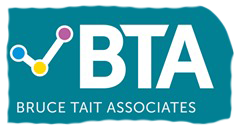23 October 2024 / Kyle McAuley
Home
/ News & Views
/ Seismic Employment Changes Ahead: How Labour’s New Deal Will Impact Non-Profits and the Social Impact Sector
Are you ready for ‘seismic’ changes to Employment? Writes Andrew Penker Chartered FCIPD MIoL Associate Director of BTA.
The Government’s new Employment Rights Bill termed ‘Labour’s New Deal for Working People,’ will ‘ban exploitative practices and enhance employment rights’ but should non-profits, social impact, and charity organisations be worried?
What should you prepare for?
The headline changes are likely to include:
• Ban zero-hour contracts: Legislation will ensure workers have a right to contract reflecting the number of hours they regularly work, with reasonable notice of any change in shift patterns.
• End Fire and Rehire or Fire and Replace: the government will reform the law to provide effective remedies and replace the previous statutory code.
• Provide day-one rights on parental leave, sick pay and protection from unfair dismissal for all workers, although employers will be able to operate probationary periods while they assess new hires.
• Remove the lower earnings limit on Statutory Sick Pay so it is available to all workers, and get rid of the three-day waiting period.
• Make flexible working the default from day one for all workers, with “employers required to accommodate this as far as is reasonable.”
• Make it unlawful to dismiss a woman who has had a baby for six months after her return to work, “except in specific circumstances.”
• Establish a new Single Enforcement Body, the Fair Work Agency, to monitor the enforcement of workplace rights.
• Set up a Fair Pay Agreement in the adult social care sector. If this works, it will assess whether such agreements could work in other sectors.
• Reinstate the School Support Staff Negotiating Body to establish national terms and conditions, career progression and pay rates for teachers and other school staff.
• Remove “unnecessary restrictions” on trade union activity, including the Strikes (Minimum Service Levels) Act, to ensure industrial relations are based around “good faith negotiation and bargaining.”
• Simplify the process of statutory recognition to ensure workers have a reasonable right to access a union in their place of work.
Impact
Peripheral workers will gain more rights to stable employment, and permanent employees will benefit from more flexibility as to how and where they work. This has implications for the training of Managers and Team Leader/Supervisors, who will have to manage probationary periods much more effectively, measuring performance and potential within reasonable but short time periods.
Pay differentials will need to be more clearly defined to ensure that this additional management requirement is recognised and rewarded otherwise Supervisory roles in other sectors will become more attractive.
Assessing whether roles can operate remotely will need to be clearly evaluated and assessed to ensure compliance, and a ‘reasonable’ approach to flexible working requests will need to be defined and put into practice effectively by Managers and Supervisors.
Reward Survey:
Join other organisations in the non-profit and social impact sector and complete the BTA Reward Survey to share your opinion on how legislative changes will impact the pay differentials and roles within your organisation, and discover what other organisations are either doing or planning to do in the future in terms of their future pay awards, rates of pay, and other relevant aspects of employment.


